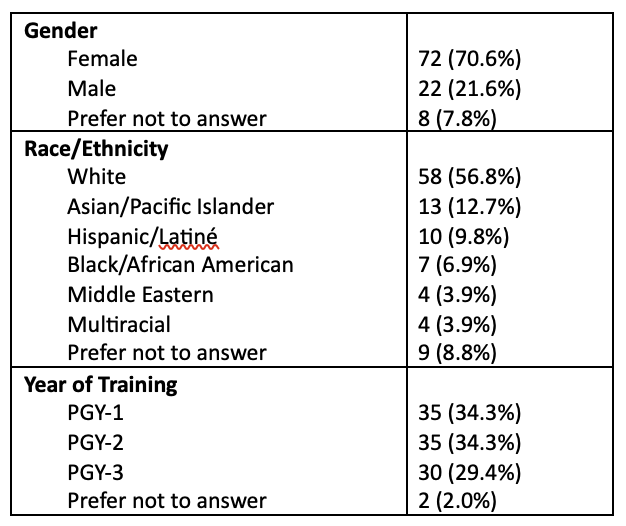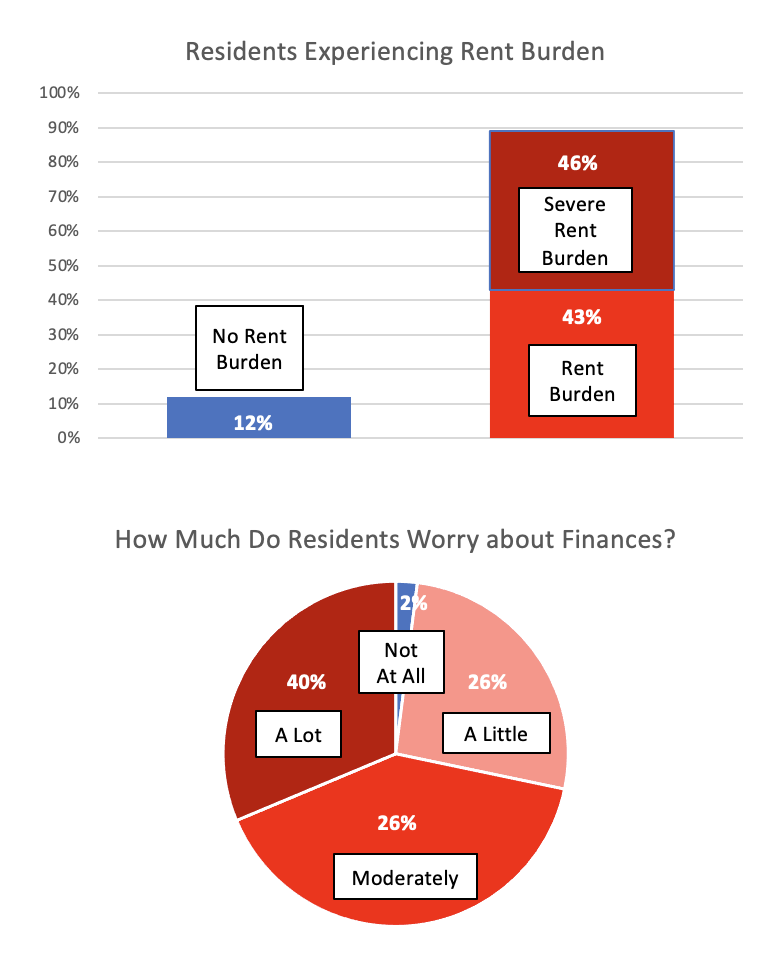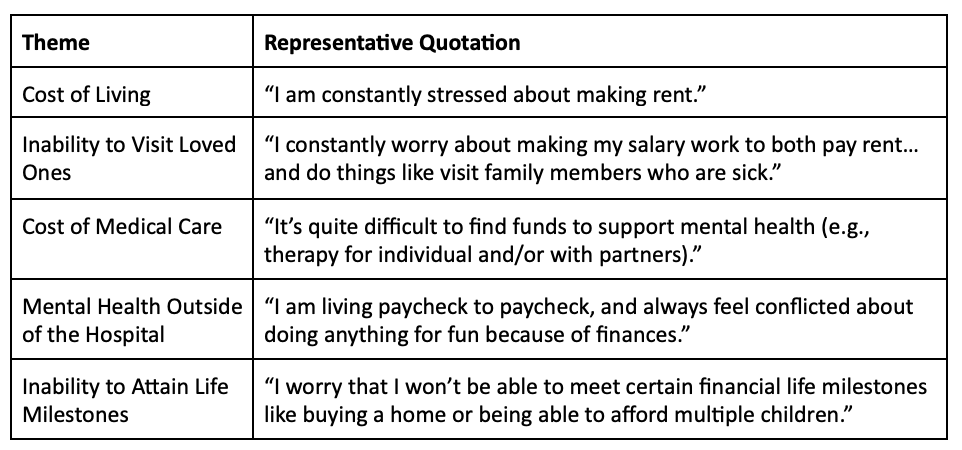Medical Education
Session: Medical Education 5
408 - Financial Health of Pediatric Trainees: A Mixed Methods Survey
Saturday, May 4, 2024
3:30 PM - 6:00 PM ET
Poster Number: 408
Publication Number: 408.1528
Publication Number: 408.1528

Thomas Day, MD (he/him/his)
Resident
Boston Children's Hospital
Roxbury Crossing, Massachusetts, United States
Presenting Author(s)
Background: Resident physicians in graduate medical education (GME) training programs are salaried employees. National data suggest that increases in cost of living have outpaced increases in trainee compensation. However, data describing the extent to which financial considerations impact trainees are lacking.
Objective: We conducted a mixed-methods survey to gather data about residents’ financial health and their perspectives to inform national conversations about trainee compensation.
Design/Methods: We conducted a cross-sectional mixed-methods survey of pediatric residents at a large training program in a high cost of living urban setting in April 2023. We used descriptive statistics for the quantitative data and grounded theory analysis to identify emergent themes in the qualitative responses. Our survey was exempt from IRB review since it was distributed for quality improvement.
Results: Fifty-six percent (102/182) of medical residents employed across four hospitals completed the survey. Seventy-nine (77.5%) respondents reported living with other people. Eighty-nine (88.1%) were rent burdened and forty-six (45.5%) severely rent burdened, respectively defined as spending >30% and >50% of income on rent and utilities. Thirty (29.1%) respondents reported financially supporting family members, including seventeen (16.7%) who were parents. Forty-seven (54.7%) reported working “moonlighting” shifts, with twenty-three (46.9%) of those reporting that they used the income to pay for basic living expenses like food, rent, or utilities. Twenty-four (23.5%) respondents were not saving money for retirement, and forty-five (45.5%) reported delaying starting or growing families because of finances. One hundred (98.0%) reported worrying about finances. Qualitative themes included concerns about cost of living, medical expenses, inability to visit loved ones, delays in wealth building and life milestones, debt repayment, and mental health.
Conclusion(s): Pediatric residents are a heterogeneous group who face significant financial, professional, and personal challenges correlating with widespread increases in costs of living. Some residents must supplement their incomes with additional clinical work to afford basic expenses. These stressors cause anxiety for almost all residents, which may exacerbate burn out. Training programs can alleviate these concerns with targeted adjustments to compensation. Advocacy on behalf of trainees at the national level is warranted. Additional work is needed to characterize financial burdens across all medical trainees and to identify the most effective interventions.



